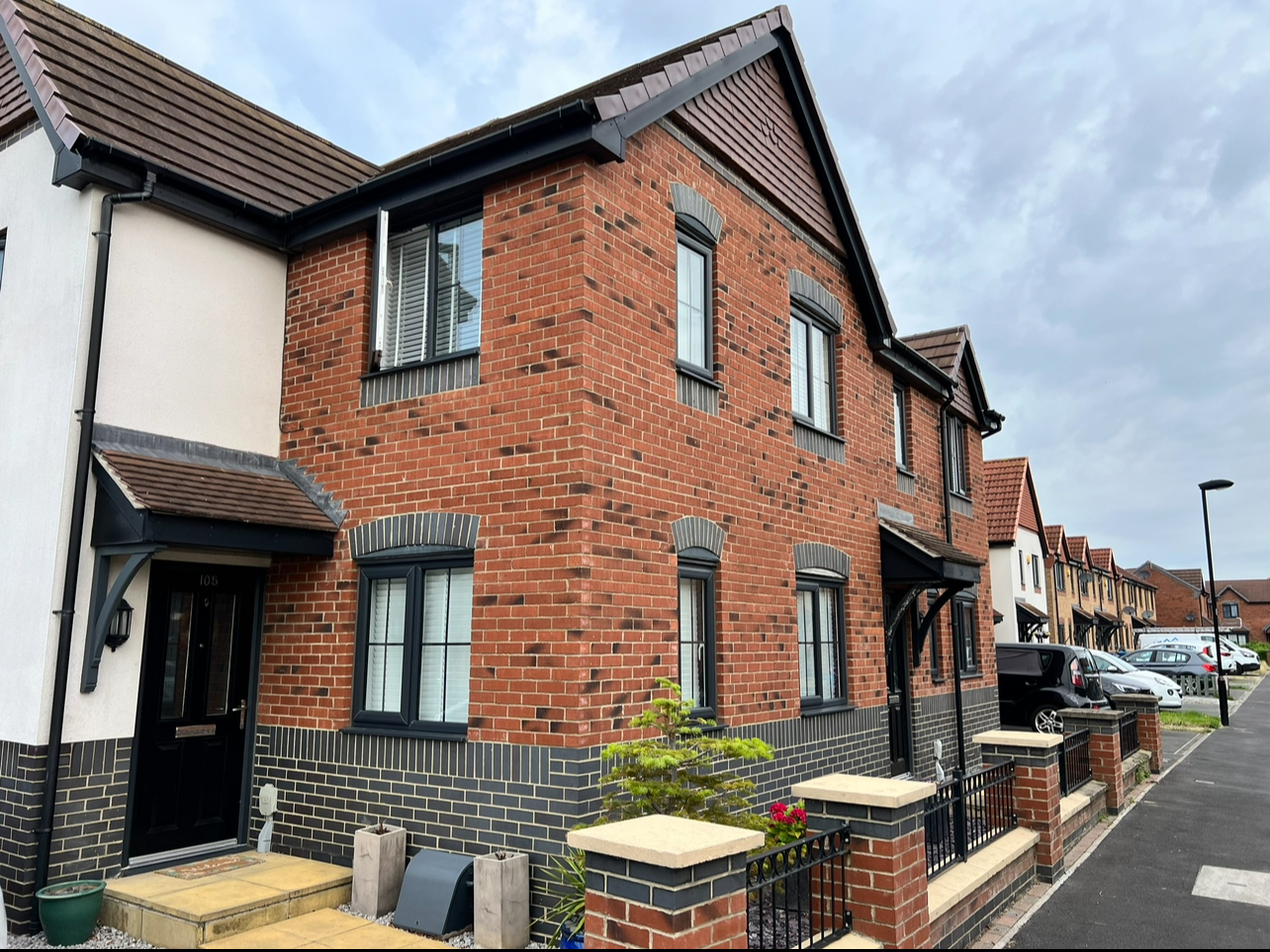If you’re trying to figure out the cost of buying a house in the UK, the answer isn’t straightforward. Property prices can differ significantly based on the region you’re looking at, the state of the housing market, and the type of home you’re interested in.
For example, choosing between a flat and a house can make a big difference in price. Other factors like the size, condition, garden space, garage availability, and even how appealing the property looks from the outside (also known as kerb appeal)can all influence the cost.
Even if two properties are listed at the same price, the overall cost you’ll pay could vary greatly depending on your mortgage terms and additional fees. Your credit score, the mortgage deal you secure, and the time you spend comparing options can all play a role in how much you’ll end up spending.
To help you understand what to expect, we’ve broken down the main costs involved in buying a property in the UK, including the deposit, fees, and other expenses. Let’s dive in!
Deposit: Your First Step to Buying a Home
When purchasing a house in the UK, you’ll need to contribute a portion of the price upfront. This upfront payment is called a deposit and is usually calculated as a percentage of the property’s total value.
For example, if you’ve saved £15,000 and plan to buy a home priced at £150,000, your deposit would be 10%. The remaining 90%—£135,000—would typically be covered by a mortgage.
If you’re a first-time buyer in the UK, your deposit will usually come from your personal savings. However, if you’re already a homeowner planning to move, you can combine the equity from your current property with any additional savings to fund your deposit.
Most mortgage lenders require a minimum deposit of 5%, although some rare options, like 100% mortgages, may be available. Keep in mind, the larger your deposit, the better your chances of securing a competitive interest rate. Lower loan-to-value (LTV) mortgages often also come with reduced fees, saving you money in the long run.
Mortgage Repayments and Interest: What You Need to Know
Once you’ve purchased your home, you’ll need to start repaying your mortgage each month. These payments cover both the loan amount and the interest charged on it. With a repayment mortgage, you’ll gradually pay off the entire loan balance plus the interest by the end of your mortgage term.
The amount of interest you pay depends on the type of mortgage you choose—whether it has a fixed or variable interest rate—and the deal you’ve secured from your lender. Interest is calculated as a percentage of your outstanding loan balance, so higher rates mean higher monthly payments.
It’s also important to consider additional fees tied to your mortgage:

Early repayment fees
Some lenders charge if you make overpayments, pay off your loan before the initial interest period ends, or switch to a new mortgage deal.
Exit fees
At the end of your mortgage term, some lenders may require you to pay an exit fee, which is typically £75 or more.
Missed payment fees
If you fail to make your mortgage payment on time, you could face penalties. Seeking guidance from a mortgage broker or independent financial adviser (IFA) can be invaluable when choosing a mortgage. They can help you find a deal tailored to your needs and may even save you money by identifying options you wouldn’t have found on your own.
Mortgage brokers typically charge around £500 for their services if you opt for the deal they recommend. However, some brokers are paid commissions by lenders, making their services free for you to use. Keep in mind that commission-based brokers might only have access to a limited selection of mortgage options.
Understanding Mortgage Fees: What to Expect
When you secure a mortgage, there are additional fees involved that can significantly add to your overall costs. Lenders are required to disclose these fees, often represented as the Annual Percentage Rate of Charge (APRC)—a key figure that includes the loan’s interest rate and associated fees, making it easier for you to compare offers.
Beyond lender fees, there are costs for experts like surveyors and solicitors, so it’s essential to factor these into your budget. Here’s a breakdown of the main fees you might encounter:
Booking Fee
Some lenders charge an upfront fee when you apply for a mortgage. Known as a booking fee, this cost is typically non-refundable, even if your application is denied. The average fee is around £100.
Arrangement Fee
Also called a product or completion fee, this is due when your mortgage application is approved. Arrangement fees can cost up to £2,000. You can choose to:
- Pay it immediately, or
- Add it to your mortgage balance (note that you’ll pay interest on it if you choose this option).
Valuation Fee
Before offering a mortgage, lenders need to ensure the property is worth the amount you wish to borrow. This fee usually ranges from £200 to £700 and covers the cost of a professional valuation.
Transfer Fee
Your lender may charge a small fee, usually between £25 and £50, to transfer the mortgage funds to complete the purchase.
Survey Fees
It’s wise to hire a surveyor to assess the property’s condition before you buy. This can help you avoid costly surprises like damp issues or roof repairs.
- A basic survey starts at around £250.
- A detailed building survey, particularly for higher-value homes, can cost up to £2,000.
Solicitor’s Fees
You’ll need a solicitor to handle various legal aspects of your home purchase, including:
- Drafting contracts
- Paying Stamp Duty Land Tax (SDLT)
- Transferring funds for the purchase
- Conducting searches for planning or environmental issues
- Registering the property with the Land Registry
Solicitor fees in the UK vary but generally range from £700 to £1,500 per property. They may charge a flat fee, hourly rate, or a percentage of the property’s price.

Stamp Duty
When you buy property in England or Northern Ireland, you’ll need to pay Stamp Duty Land Tax (SDLT). In Scotland, it’s called Land and Buildings Transaction Tax, and in Wales, it’s Land Transaction Tax.
Here’s how the rates break down in England and Northern Ireland:
- Up to £250,000: 0%
- £250,001 to £925,000: 5%
- £925,001 to £1.5 million: 10%
- Over £1.5 million: 12%
If you’re a first-time homebuyer, you’re in luck! You won’t have to pay Stamp Duty on the first £425,000 of a residential property, as long as the property’s total price is below £625,000.
Keep in mind, the exact amount you’ll pay depends on the property’s price, so make sure you factor this into your budget when calculating the total cost of buying your new home.
Moving Costs
When it comes to moving your belongings into your new home, doing it yourself can save you some money—especially if you have a large enough vehicle to transport your biggest items. However, there are still a few costs to consider:
- Hiring a removals firm
- Renting a van
- Taking time off work
On average, moving costs between £300 and £600, but it could be higher if you hire a removals company, have a lot of large items, or need to move a long distance.
If you choose to go with a removals company, you can cut costs by booking in advance and avoid moving on Fridays or Mondays. Mid-week moves tend to be cheaper since they’re less in demand.
What Next: Buying a house in the UK
While many buyers focus primarily on the amount needed to purchase the property, it’s just as important to consider all the additional fees involved in the process. These costs may seem like a lot, but with the help of a professional, you can navigate them and potentially reduce some of the expenses along the way.
If you have any questions about buying a home and managing costs during the process, we’re always here to assist you. Book a free discovery call with us, and we’ll be happy to answer any questions you have and guide you through the next steps.
![]()

